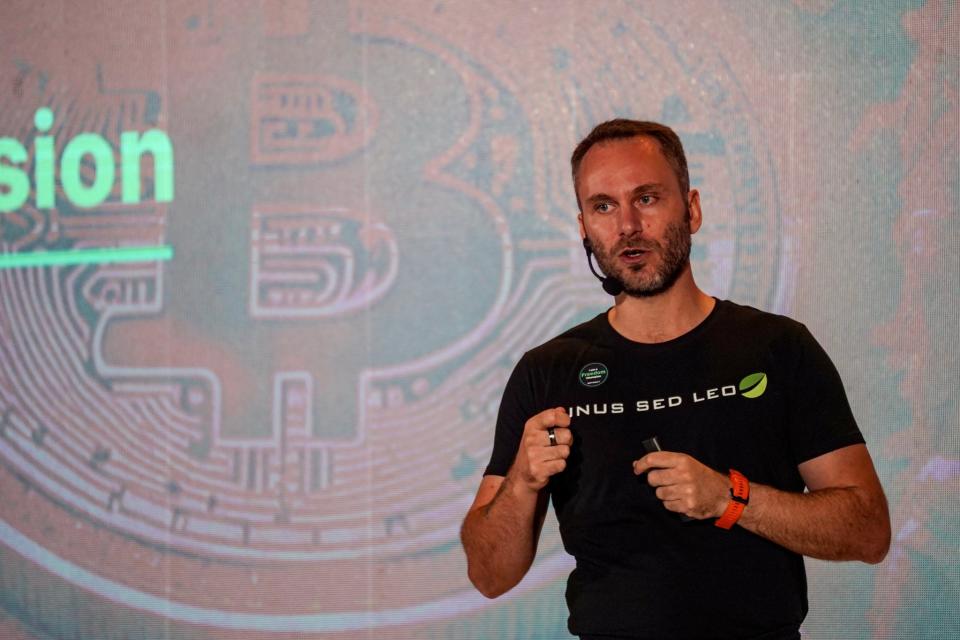Tether’s CEO wants to be the Elon Musk of money

For the better part of a decade, Tether has been one of the most dominant companies in crypto alongside Binance and Coinbase but is often overlooked. This is mostly by design, as the company and its executives have preferred to exist in the shadows even as they've pulled in a fortune with Tether's USDT stablecoin, which is the go-to currency for the crypto economy. But now that's changing as Tether, sitting on an eye-popping $105 billion in reserves, and CEO Paolo Ardoino look to pull the company into the financial mainstream.
I chatted with Ardoino this week and he explained that Tether has expanded far beyond its roots as the in-house currency for offshore crypto speculators. He says that, particularly in regions like Latin America, USDT is a popular form of money for ordinary people who can't trust their governments to maintain a stable currency.
Whatever Tether is doing is clearly working as Ardoino expects the first three months of 2024 to be its most profitable quarter to date—which would be more than the $3 billion it earned in the final quarter of last year. Its $105 billion market cap means Tether is more dominant in the stablecoin market than ever, and it's using its extra cash to invest heavily in AI and to play the Washington, D.C., game. In recent months, Tether became the third biggest crypto lobbyist after Coinbase and trade group The Blockchain Association.
In its quest to enter the mainstream, Tether will have to overcome a longtime reputational problem that did not improve when the company and its executives were cast as James Bond-style villains in the crypto book Number Go Up (which crypto-hating SEC Chairman Gary Gensler likes to display in video speeches). I asked Ardoino how he felt about the book, which depicted Tether as the favorite tool of Asian criminal gangs that enslave people to run cruel "pig-butchering" scams. The Tether CEO paused, then took a breath, and said finally, "The book is not intelligent." He added the book judged crypto entirely by the bad people who use it and failed to account for those it helps. Ardoino added that Tether has been robustly helping law enforcement to crack down on scams and that it was instrumental in breaking up a high-profile $80 million pig-butchering scam.
As Tether rides high on its record profits and pushes for legitimacy, the company is setting itself up to be a powerful financial player well beyond the bounds of crypto. I asked Ardoino which CEO he views as a role model as he builds his company and, like many crypto founders, he named Elon Musk.
"What I like about Elon is the ability to understand how we as humans should think about the next 20 years as the most crucial for our existence, with AI tools extremely potentially harming society as we know it," said Ardoino. "His thinking ahead and [about] how things could evolve? That's what I really like in Musk."
Ardoino's plans to make Tether a big and permanent part of the world's money supply reflects not only Musk's focus on the future, but also his ambitions. Whether that would be a good thing or a bad thing depends very much on where you stand.
Jeff John Roberts
jeff.roberts@fortune.com
@jeffjohnroberts
This story was originally featured on Fortune.com
